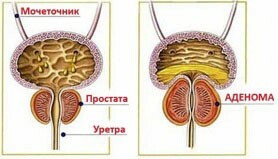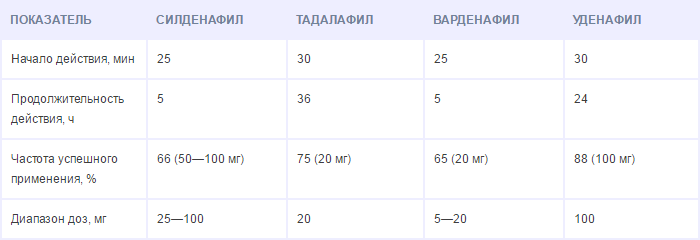Causes of urinary incontinence in men and classification
Statistics show that 16% of the adult population, half of whom are men, have some kind of incontinence symptoms. And with age in men there is a clear tendency to increase the disease. The greatest number of patients is noted in the age groups over 40 years.
Contents
- 1 Classification:
- 2 Main causes of urinary incontinence in men
- 2.1 Diseases of the nervous system
- 2.2 Narrowing of the urethra
- 2.3 Consequences of the transferred operations
- 2.4 Other causes of urinary incontinence:
- 3 Diagnosis
Classification:
- Stress( urinationOccurs during physical exertion, laughter, coughing, sneezing).The urge to urinate is absent. The reason - the anatomical changes leading to hypermobility of the urethra and weakness of the sphincter.
- Urgent( without connection with the load) - the presence of an irresistible urge. The reason is pathological reductions of the detrusor.
- Mixed - a combination of signs of stressful and urgent incontinence.
The main causes of urinary incontinence in men
Diseases of the nervous system
The nervous system is responsible for conducting a signal from the brain to the organs of the genitourinary system and in the opposite direction, thereby regulating and controlling urination. If any transmission mechanisms of nerve impulses are damaged, communication is cut off.
Nervous system disorders can result in:
- trauma to the spinal cord or brain with loss of control over urination( no urge, so urination can not be controlled);
- stroke;
- neurogenic bladder dysfunction in spinal patients;
- dorsal;
- Multiple Sclerosis;
- Parkinson's disease is a disease associated with a deficiency of a substance( dopamine) responsible for the transmission of nerve impulses, as a result of which the patient loses control over the management mechanism;
- Alzheimer's disease;
- diabetes mellitus.
Narrowing of the urethra( urethra)
The cause of narrowing of the urethral lumen may be:
-
 benign prostatic hyperplasia( BPH).With age, men may experience enlargement of the prostate gland. In medical practice, this is known as prostate adenoma or BPH.With an increase in the prostate, a narrowing of the urethra occurs, which violates the outflow of urine. This can be manifested by the following symptoms: lethargic jet, intermittent urination, increased frequency of urination( including at night), inability to withhold urge to urinate, etc.;
benign prostatic hyperplasia( BPH).With age, men may experience enlargement of the prostate gland. In medical practice, this is known as prostate adenoma or BPH.With an increase in the prostate, a narrowing of the urethra occurs, which violates the outflow of urine. This can be manifested by the following symptoms: lethargic jet, intermittent urination, increased frequency of urination( including at night), inability to withhold urge to urinate, etc.; - sclerosis of the prostate;
- stricture of the urethra.
Consequences of
Postoperative Operations Urinary incontinence in men can be the result of the following operations on the pelvic organs:
- Transurethral resection of the prostate( removal of part of the prostate gland).
- Radical prostatectomy( removal of the entire prostate gland).
- Radiation therapy, brachytherapy.
Other causes of urinary incontinence:
- Congenital abnormalities of the genitourinary system.
- Infectious diseases of the genitourinary system.
- Age changes.
Diagnostics
Collection of information( medical history, lifestyle, characteristics of drug administration)
At the first appeal the physician should find out the complete medical history, the transferred operations and so on. Similarly, the doctor should inquire about your lifestyle, the frequency of alcohol intake, smoking, taking medications( including OTC drugs, like vitamin-mineral complex, herbal infusions).
At this stage, the patient may be asked to complete the International Incontinence Board Questionnaire( ICIQ - Full Form, ICIQ-SF-short form) or the Prostate Disease Assessment Scale( IPSS-QOL), which will allow a more accurate and quick diagnosis.
The general examination includes:
- neurological examination of the patient;
- digital rectal examination, for the diagnosis of the prostate gland.
Diary of urination
Diary of urination is a report of the patient on the characteristics of his urination in recent days( about 3), including counting the number of emptying the bladder, the nature of day and night urination( spontaneous or controlled), the amount of liquid drunk andOther
Ultrasound( US):
- of the Bladder;
- Kidney.
Urodynamic study of
After all the studies performed, if the diagnosis is unclear, a full urodynamic examination of the genitourinary system is performed, which shows the dynamics of the bladder's behavior during filling and emptying.
urethrocystoscopy
The procedure consists of administering a cystoscope to the urethra and bladder, in order to visually inspect the mucous membranes.
Read more: Details of urinary incontinence in men
Recommended viewing:



